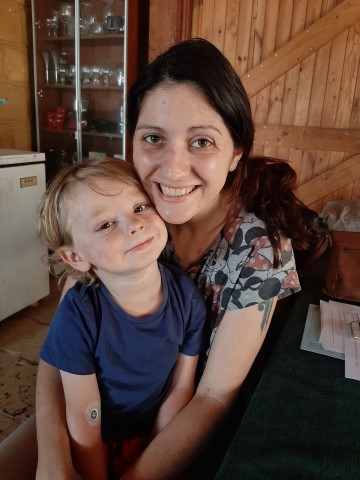Search

News & Events
New position to help roll out schools programA Clinical Nurse Specialist position within Perth Children’s Hospital’s Diabetes Service has been funded as part of the Federal Government’s new Type 1 Diabetes Management in School program.

News & Events
Mentor project gets the thumbs upYoung adult and parent peer mentors can be role models who not only normalise experiences of living with type 1 diabetes but can act as symbols of hope, new Children’s Diabetes Centre research has found.

News & Events
Family history drives studyA family link to type 1 diabetes has seen twins Nina and Lara Buonvecchi pursue study in health science – and join the Children’s Diabetes Centre to complete their pracs.

News & Events
Meet Perth's final ENDIA participantAustralia’s biggest study into the causes of type 1 diabetes reached a significant milestone when its last Perth-based participant was born recently.

News & Events
T2D now being diagnosed in children as young as sixChildren as young as six years old are being diagnosed with type 2 diabetes, according to Perth endocrinologists who are calling for early screening of at-risk groups.

News & Events
Ashlyn's gold medal runBig shout out to one of our regular research participants, Ashlyn, who goes to show that type 1 diabetes is no obstacle to achieving success in top-level sport.

News & Events
Technology proves a gamechangerHeidi Bucktin likes to think of her family’s life as pre and post continuous glucose monitoring – that’s how markedly different the two periods are in their journey of living with a child with type 1 diabetes.

News & Events
Welcome to the team Amelia!We’re super excited to welcome Dr Amelia Harray to our research team. Amelia looks forward to strengthening the focus on food research to help children with type 1 diabetes and their families.

News & Events
ENDIA milestoneAustralia’s biggest study into the causes of type 1 diabetes recently recruited its 1500th and final participant right here in WA.

News & Events
World Diabetes DayIt may only have been a matter of months since Abby Carlon was diagnosed with type 1 diabetes but already the 10-year-old knows more than most about the condition. That’s because she’s always kept an eye out for her little sister Mia who was diagnosed with type 1 diabetes when she was three.
